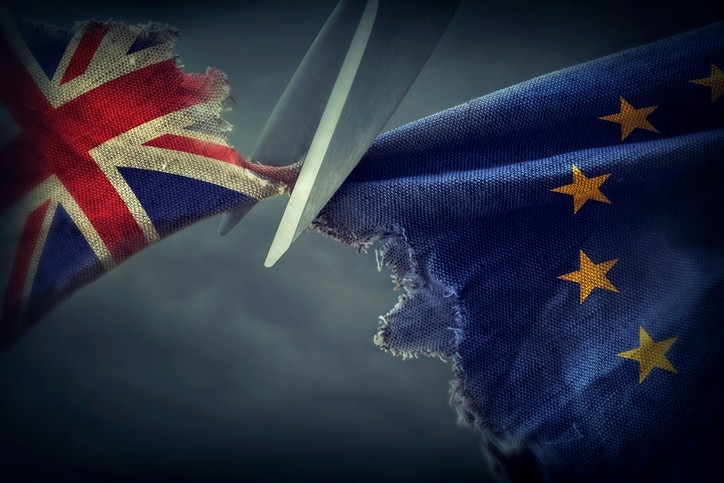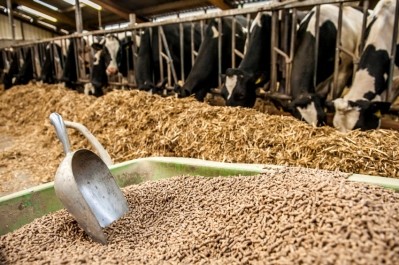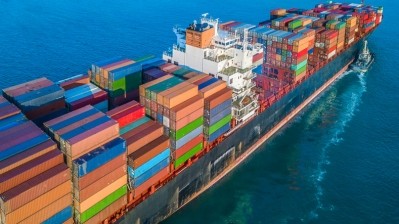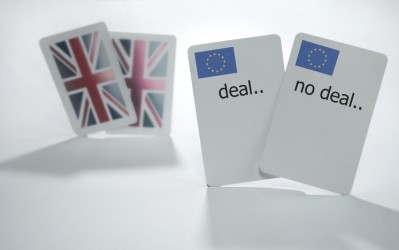Brexit uncertainty feeding into raw material purchasing for UK pig and poultry producers

A host of representatives from the dairy, pig and poultry sectors briefed the UK parliament’s Environment, Food and Rural Affairs Committee about the challenges and opportunities now and post Brexit.
Andrew Saunders, agriculture director, Tulip Ltd, which is part of Danish Crown, and is now the UK’s largest pig producer, told the politicians one of the hurdles the UK pig and chicken industry currently faces is not being fully able to understand the future cost of producing meat in the UK.
He said forward feed purchasing is problematic because of a knowledge gap, that nobody knows what the tariffs are going to be, or otherwise, post March 2019.
“We import quite significant amounts of feed raw materials like soy that are required for protein to go into animal diets.
“We started to look into purchasing those raw materials post April 2019, post Brexit, and we are now faced with a scenario where we cannot get quotes for that product.
“In terms of looking ahead, scaling up and planning our business, because of the uncertainty, we are now in a market where we cannot identify those costs because suppliers will not quote to us. That lack of certainty prevents investment from taking place ...”
‘Trade deal with EU vital’
All the livestock sector representatives stressed a frictionless trade deal with the EU is paramount.
“Trading within Europe is absolutely vital for the sector,” said Edward Barker, senior policy adviser, at the UK’s National Pig Association (NPA).
While there have been a lot of scenarios produced that make the UK pig sector look like it has a particularly rosy outcome in the event of a hard Brexit or a no-deal scenario, he said he wanted to bat that suggestion away very quickly. “Because not having access to the single market or even just having a trade arrangement with Europe is extremely serious, mainly for carcass balance. The carcass balance situation between Europe and us is quite delicate and we really want to maintain that at all costs. We know that this is a two-way scenario: that Europe exports a lot to the UK and we would want to try to continue that.”
Outside of the EU, he said the UK has been setting a trail in terms of food exports across the world, not just to South East Asia and Asia, but also to other developed economies in different cuts.
“There is a very successful model in terms of year-on-year exports .. It is on two bases of Europe and non-Europe, but the most important challenge facing us straight away is that that access to European markets is kept,” added Barker.
Paul Vernon, chair of Dairy UK and chief executive of Glanbia Cheese, said the UK dairy sector manufactures about 7.7 billion tons of products and exports 1.1 million tons of that – putting exports at 15% of output. About 85% to 90% of the total of those dairy exports ends up in mainland Europe, he said.
“That is a key market for the [UK] dairy industry. Obviously, in a Brexit scenario we would like to think that those exports will continue. From an industry perspective, we are hoping that they will continue and that we have unrestricted access to the European market and the other markets that we currently deal with.”
Labor challenges
Peter Allan, general manager of Cargill Meats Europe, raised the topic of availability of workers: “Cargill is an owner, since 1980, of a UK poultry business based in Hereford. We are also a provider of poultry products from the EU and third-country supply chains to consumers in the UK. Our key challenges going forward are the availability of labour in Herefordshire and the necessary clarity required on the substance of trade for both exports and imports."
Vernon touched on staffing issues as well. “In our Northern Ireland facility, 10% of our workforce is what we would classify as non-national. They have been there for quite a considerable period of time, so it is not impacting us today, but we are aware that within the meat sector in Northern Ireland, labor availability is becoming an issue.”
Richard Griffiths, chief executive of the British Poultry Council, also weighed in such challenges: “The two big areas of concern are trade and access to labor. In the worst case scenario, labour is probably our biggest concern. If we do not have access to EU labour at this time, it will be a disaster for the industry and we will see massive shrinkage in the industry. Our workforce at the moment is around 60% EU nationals.”
The pig meat sector is in a similar place in that processing factories are 60% to 70%, and in some factories up to 80%, non-UK workforce, said Saunders. “While we can develop automatic systems to some extent, a lot of the requirements and the skills associated with butchering meat still require a skilled workforce, and non-availability of that would have significant impact on our ability to process either British or imported pig meat. Those are probably our two major concerns: trade and labour availability.”
Demand for clarity
Allan stressed that the UK poultry sector just wants all the ambiguity to end. “We have very strong consumer demand. We have companies that [want] to invest here in the UK. What the industry requires is clarity: clarity of purpose, clarity of how you manage a business, clarity in future direction.
“At the moment, it feels as if there is not the clarity that we need on the basis that we have some … long-term contracts with our customers; plus we have a long supply chain. Within that, there is broadly a two to three-year period.
“Whatever the output is, whether there is another vote or not, from our perspective, the industry just wants clarity.”
The full transcript of the industry representatives’ oral evidence is accessible here.












